Search titles
Displaying results 191 to 200 of 203.
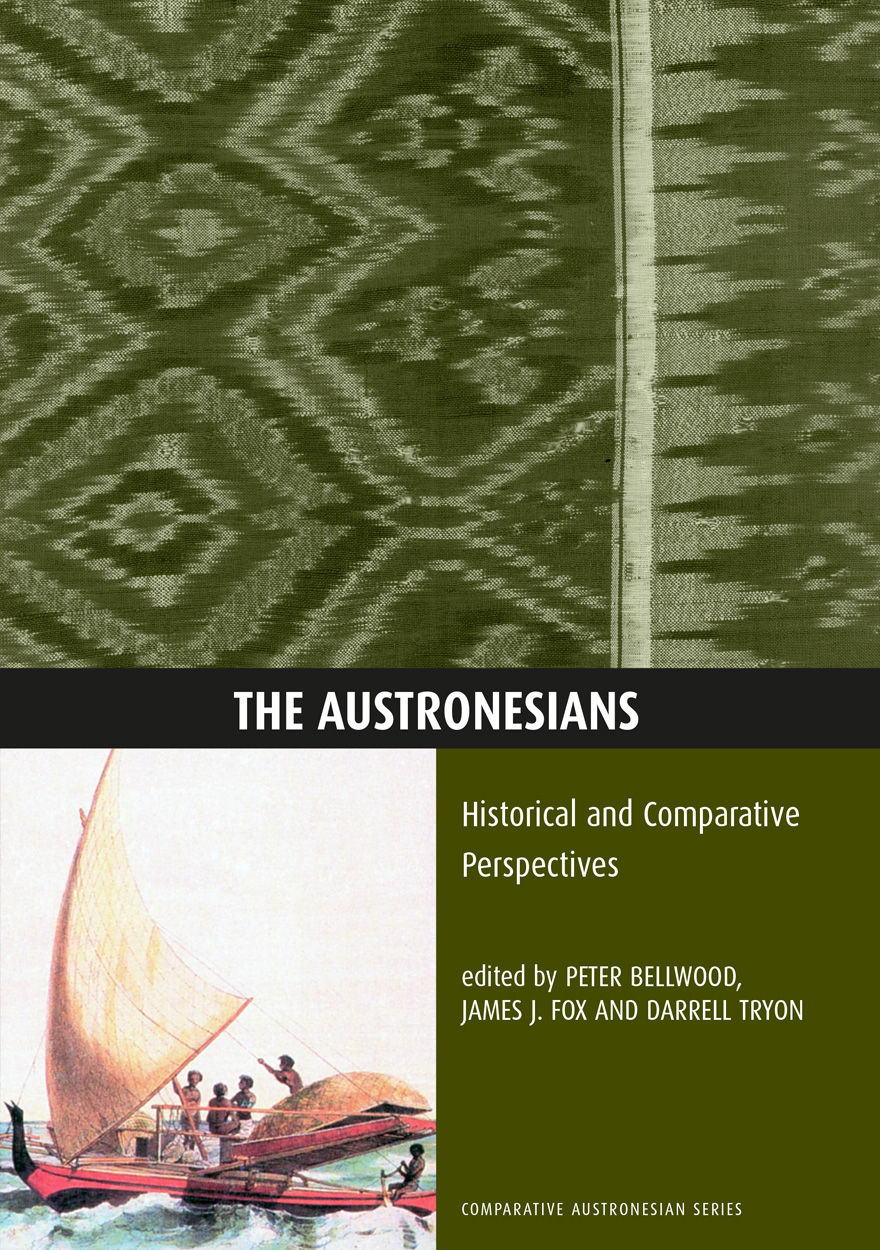
The Austronesians »
Historical and Comparative Perspectives
Publication date: September 2006
The Austronesian-speaking population of the world are estimated to number more than 270 million people, living in a broad swathe around half the globe, from Madagascar to Easter Island and from Taiwan to New Zealand. The seventeen papers in this volume provide a general survey of these diverse populations focusing on their common origins and historical transformations. The papers examine current ideas on the linguistics, prehistory, anthropology and recorded history of the Austronesians. This volume is a publication of the Research School of Pacific and Asian Studies’ Comparative Austronesian Project.
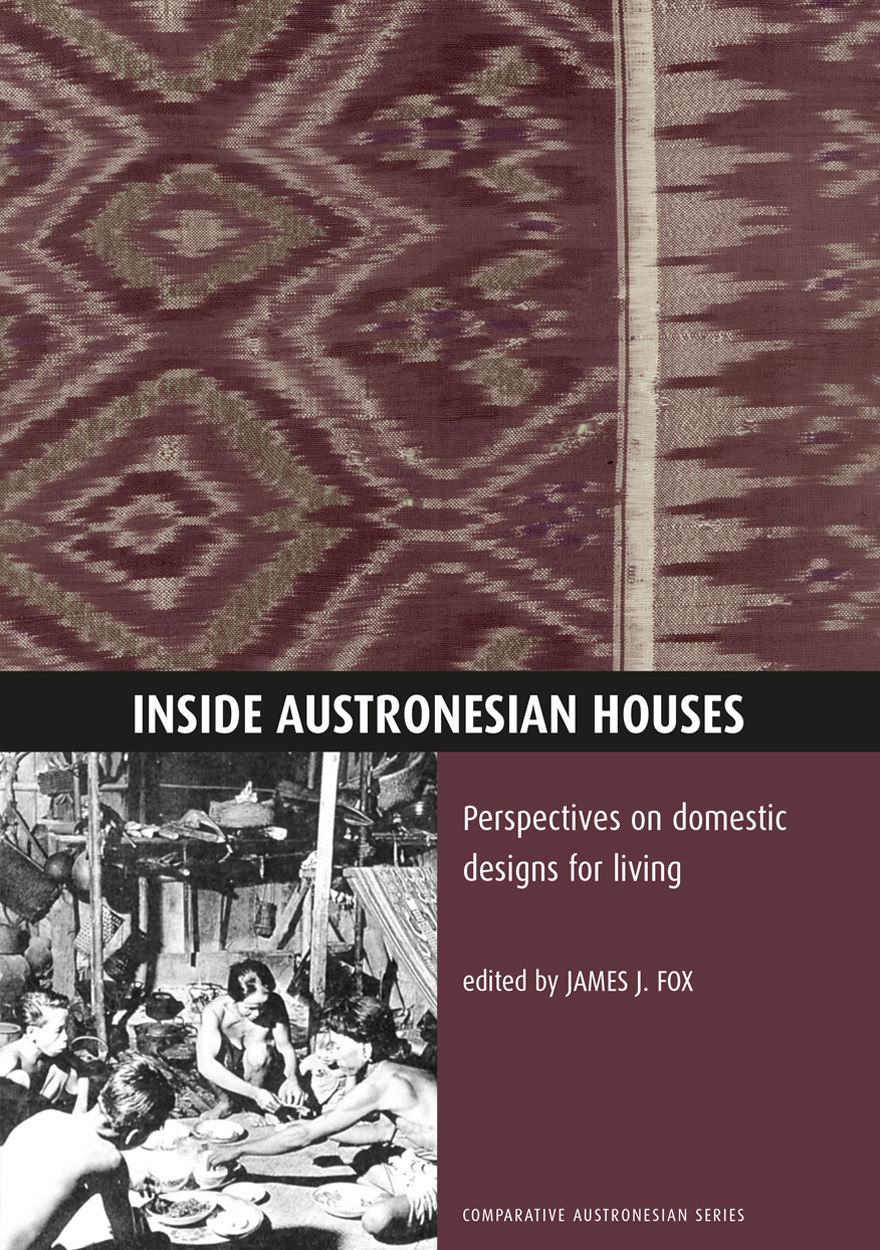
Inside Austronesian Houses »
Perspectives on domestic designs for living
Edited by: James J. Fox
Publication date: September 2006
The eight papers in this volume examine the spatial organization of a variety of Austronesian houses and relate the domestic design of these houses to the social and ritual practices of the specific groups who reside within them. The houses considered in this volume range from longhouses in Borneo to the meeting-houses of the Maori of New Zealand and from the magnificent houses of the Minangkabau of Sumatra to the simpler dwellings of the population of Goodenough Island in Papua New Guinea. Together these papers indicate common features of domestic design from island South-East Asia to Melanesia and the Pacific. This volume is a publication of the Research School of Pacific Studies’ Comparative Austronesian Project.
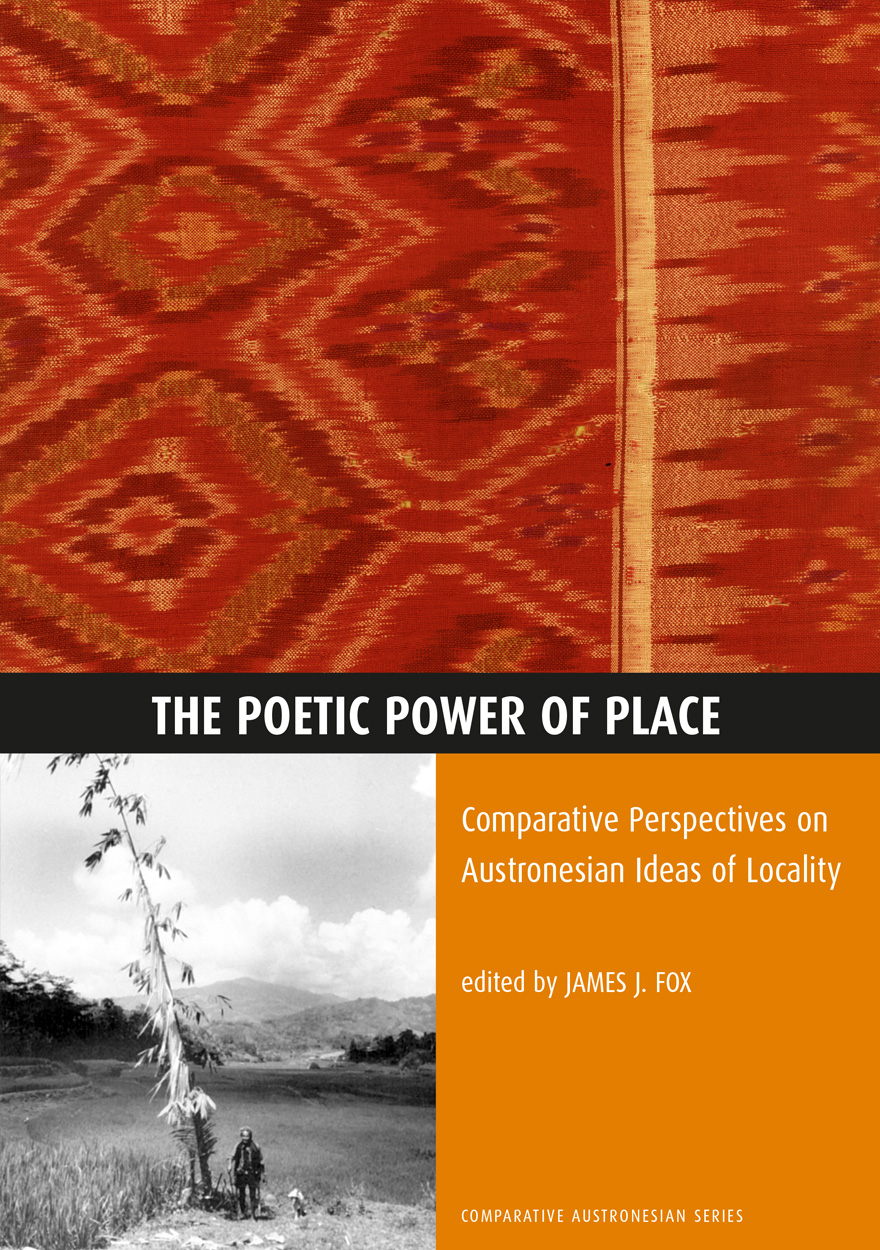
The Poetic Power of Place »
Comparative Perspectives on Austronesian Ideas of Locality
Edited by: James J. Fox
Publication date: September 2006
This collection of papers is the fourth in a series of volumes on the work of the Comparative Austronesian Project. Each paper describes a specific Austronesian locality and offers an ethnographic account of the way in which social knowledge is vested, maintained and transformed in a particular landscape. The intention of the volume is to consider common patterns in the representation of place among Austronesian-speaking populations.
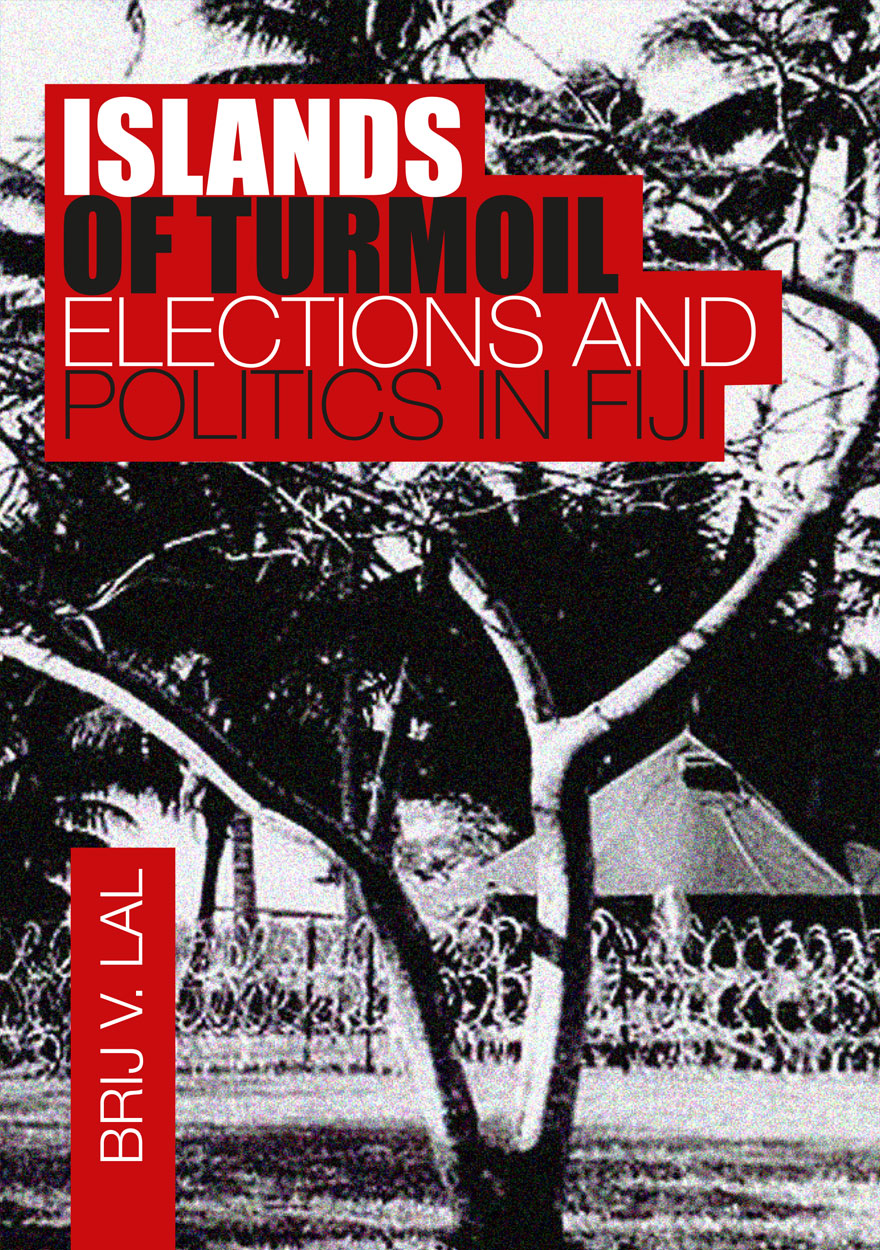
Islands of Turmoil »
Elections and Politics in Fiji
Authored by: Brij V. Lal
Publication date: August 2006
“It is not so much whether things are not as bad as they ought to be or could have been. It is, rather, whether things could have been much better”.
By rights, the island nation of Fiji should be thriving. It is easily the most developed country in the South Pacific; it is a hub for regional transportation and communication links, the home of international diplomatic, educational and aid organisations, with a talented multiethnic population. Yet, since its independence it has suffered two military coups in 1987 and an attempted putsch in 2000, resulting in strained institutions, and disrupted improvements to essential infrastructure, and to educational, social and medical services.
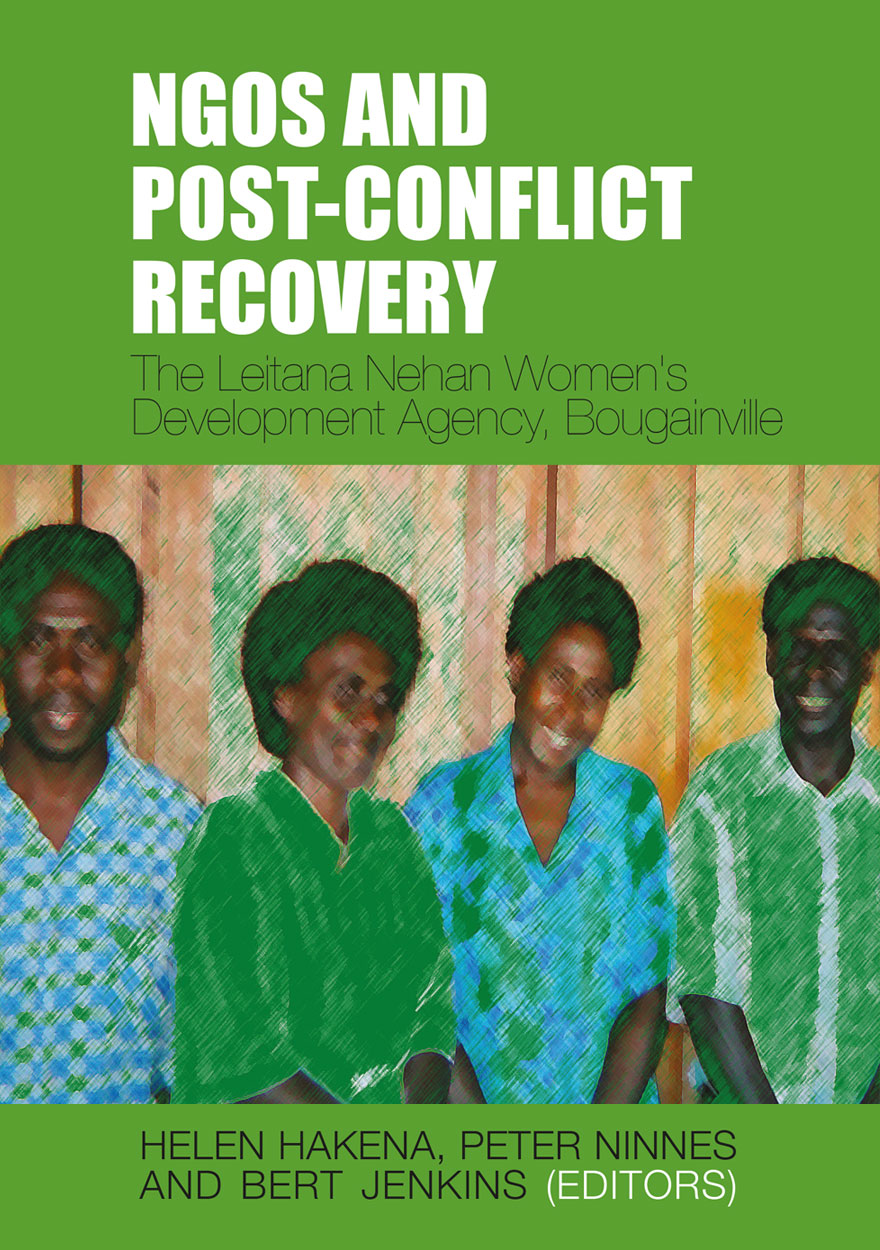
NGOs and Post-Conflict Recovery »
The Leitana Nehan Women’s Development Agency, Bougainville
Edited by: Helen Hakena, Peter Ninnes, Bert Jenkins
Publication date: April 2006
When government services have broken down or when international nongovernment organisations are uninterested or unable to help, grassroots non-government organisations provide important humanitarian, educational and advocacy services. Yet, too often the story of the crucial role played by these organisations in conflict and post-conflict recovery goes unheard.
The Leitana Nehan Women’s Development Agency provides many salutary lessons for grassroots non-government organisations undertaking peacemaking and peace-building work. In the thirteen years of its existence, it has contributed humanitarian assistance, provided education programs on peace, gender issues and community development, and has become a powerful advocate for women’s and children’s rights at all levels of society. Its work has been recognised through the award of a United Nations’ Millennium Peace Price in 2000 and a Pacific Peace Prize in 2004.
This book makes a unique contribution to understanding the role of nongovernment organisations in promoting peace and development and gender issues in the South West Pacific.

El Lago Español »
Authored by: O.H.K. Spate
Publication date: April 2006
En sentido estricto, “el Pacífico” no existió como tal hasta que en 1520-21 Fernao de Magalhãis, más conocido como Magallanes, atravesó la enorme extensión de aguas que entonces recibieron su nombre». Con estas palabras, el historiador y geógrafo de origen británico Oskar Spate presenta su versión del proceso en el que ese inmenso vacío se transforma en centro de las relaciones globales. El lago español describe el éxito esencialmente europeo y americano en convertir ese espacio en el nexo del poder económico y militar.
Este trabajo es una historia del Pacífico, el océano que se convirtió en el escenario del poder y el conflicto conformado por la política de Europa y el contexto económico de la América española. Sólo podía haber un concepto de «el Pacífico» una vez establecido el límite y el contorno del océano y esto era, indudablemente, trabajo de europeos. Cincuenta años después de la Conquista, Nueva España y Perú fueron la base desde donde el océano conformó virtualmente un lago español.

Rule of Law, Legitimate Governance & Development in the Pacific »
Authored by: Iutisone Salevao
Publication date: December 2005
The notion that the rule of law embodies or guarantees all the essential requirements for a perfectly just society is extravagant and naïve. Nonetheless, the rule of law remains an essential human virtue whose usefulness the world has yet to outgrow. Using the rule of law as a mobilising theme, this book recasts Western theories of law, good governance and development in a Pacific perspective. While Iutisone Salevao works primarily within a legal analytical framework, he employs a multifaceted approach to address the challenge of making Western theories relevant to the concrete and normative contexts of the Pacific peoples, and to accommodate Pacific values, ideologies, structures and practices within the modern discourse on law.
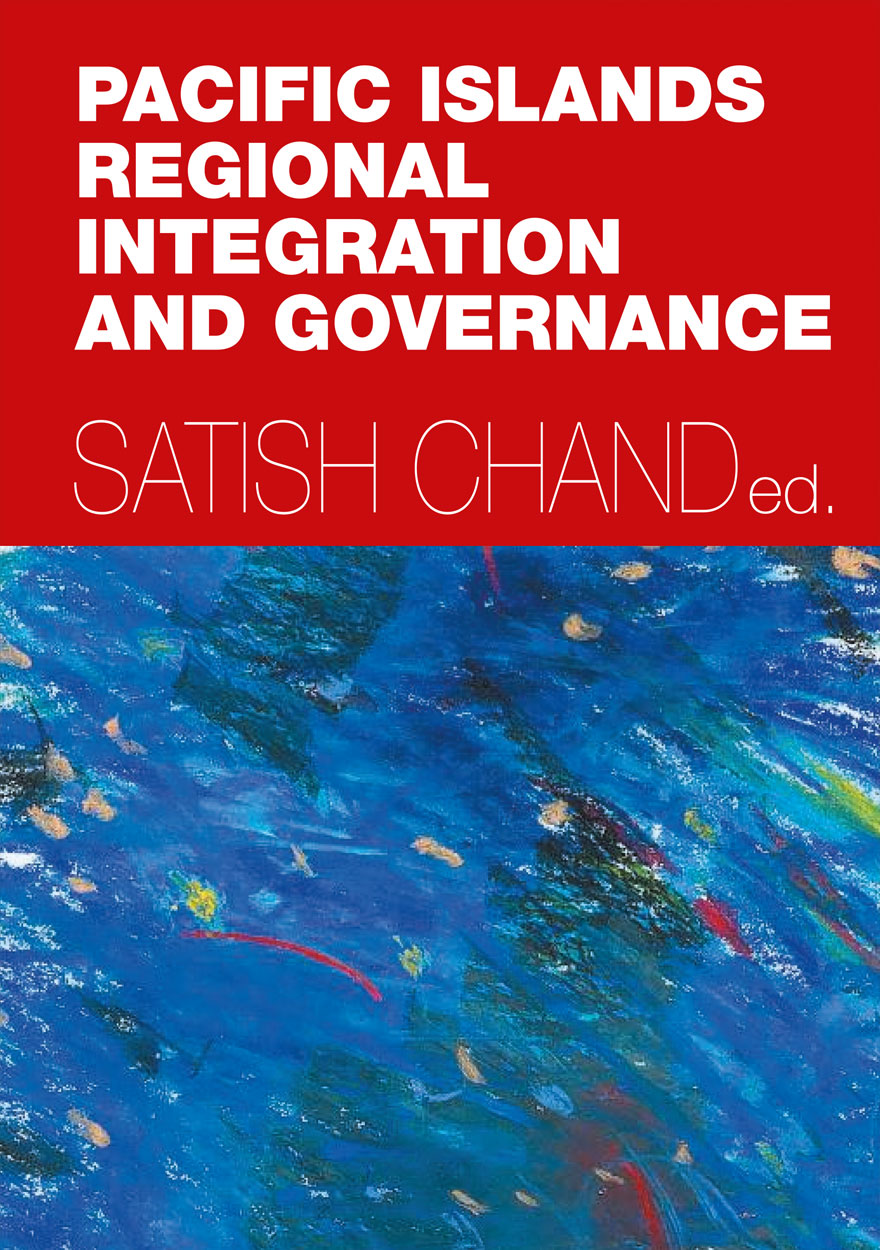
Pacific Islands Regional Integration and Governance »
Edited by: Satish Chand
Publication date: November 2005
This book brings together experts from around the world to consider specific issues pertaining to regional integration and governance within small states. The authors collectively address the challenges posed to small states by the quickened pace of globalisation. The lessons learnt from the experiences of small states are then used to draw policy lessons for the Pacific island countries.
Pacific Islands Regional Integration and Governance will be of interest and relevance to academics and advanced students of the Pacific, its history and current challenges, as well as the general reader who has an interest in the area.

Pacific Regional Order »
Authored by: Dave Peebles
Publication date: October 2005
The way ahead …
New policies are needed if the Pacific is to realise its potential as a peaceful, prosperous region, where the Pacific’s citizens enjoy good standards of health and education, long lives and many opportunities; where Pacific economic growth is constantly improving, driven by environmentally sustainable service industries; where coups, civil conflict and the dangers of failed states have been relegated to the past; where the Pacific is integrated into the wider region, and is an influential voice in world affairs.
This timely book argues that Pacific countries including Australia, need to embrace regional integration to realise this vision. The book sets out a comprehensive plan for realising a Pacific regional community dedicated to promoting sustainable development, security, human rights, the rule of law and democracy.
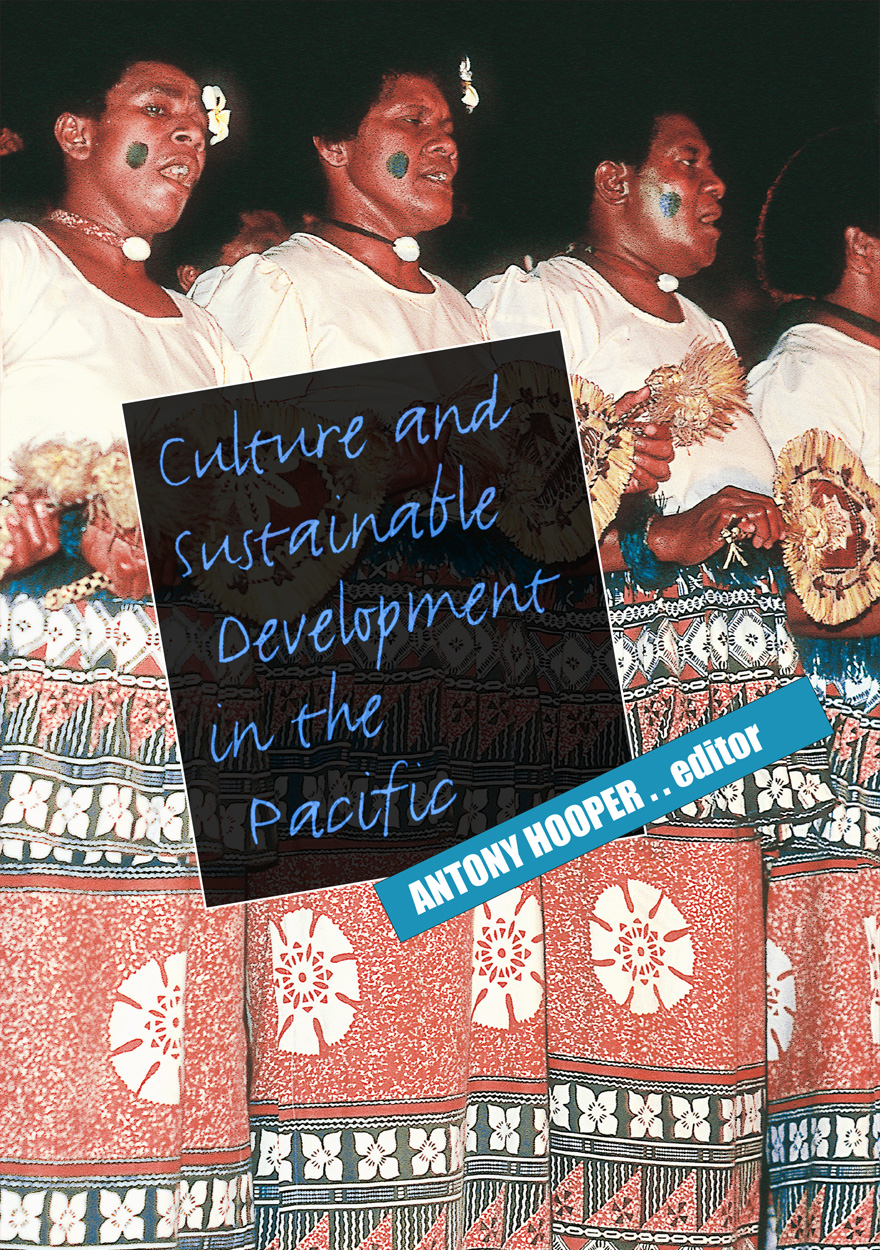
Culture and Sustainable Development in the Pacific »
Edited by: Antony Hooper
Publication date: April 2005
Throughout the South Pacific, notions of ‘culture’ and ‘development’ are very much alive—in political debate, the media, sermons, and endless discussions amongst villagers and the urban élites, even in policy reports.
Often the terms are counterposed, and development along with ‘economic rationality’, ‘good governance’ and ‘progress’ is set against culture or ‘custom’, ‘tradition’ and ‘identity’. The decay of custom and impoverishment of culture are often seen as wrought by development, while failures of development are haunted by the notion that they are due, somehow, to the darker, irrational influences of culture.
The problem is to resolve the contradictions between them so as to achieve the greater good—access to material goods, welfare and amenities, ‘modern life’—without the sacrifice of the ‘traditional’ values and institutions that provide material security and sustain diverse social identities.
Resolution is sought in this book by a number of leading writers from the South Pacific including Langi Kavaliku, Epeli Hau’ofa, Marshall Sahlins, Malama Meleisea, Joeli Veitayaki, and Tarcisius Tara Kabutaulaka. The volume is brought together for UNESCO by Antony Hooper, Professor Emeritus at the University of Auckland. UNESCO experts include Richard Engelhardt, Langi Kavaliku, Russell Marshall, Malama Meleisea, Edna Tait and Mali Voi.



